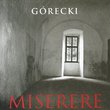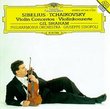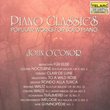| All Artists: Vincenzo Bellini, Ruggero Leoncavallo, Gaetano Donizetti, Wolfgang Amadeus Mozart, Gioachino Rossini, Giacomo Puccini, Giuseppe Verdi, Georges Bizet, Camille Saint-Saens, Pietro Mascagni, Licinio Refice, Metropolitan Opera Orchestra, La Scala Theater Orchestra & Chorus, Vienna State Opera Orchestra, Luisa Tetrazzini, Enrico Caruso, Ernestine Schumann-Heink, John McCormack, Amelita Galli-Curci, Rosa Ponselle Title: Great Singers, 1909-1938 Members Wishing: 0 Total Copies: 0 Label: Nimbus Records Release Date: 12/2/1992 Genres: Pop, Classical Styles: Vocal Pop, Opera & Classical Vocal, Historical Periods, Classical (c.1770-1830), Modern, 20th, & 21st Century Number of Discs: 1 SwapaCD Credits: 1 UPC: 710357780127 |
Search - Vincenzo Bellini, Ruggero Leoncavallo, Gaetano Donizetti :: Great Singers, 1909-1938
 | Vincenzo Bellini, Ruggero Leoncavallo, Gaetano Donizetti Great Singers, 1909-1938 Genres: Pop, Classical
|
Larger Image |
CD DetailsSimilarly Requested CDs
|
CD ReviewsAn important part of any collection Phillip T. Lewis | Nashville, TN USA | 01/17/2002 (5 out of 5 stars) "While noone will rave about the sound quality of these recordings, they are none the less important documents regarding the transition of operatic style from the 19th to the 20th centuries. Most pieces are at a quicker tempo or edited due to recording restrictions of the time, however, these imperfections vanish when one hears the stunning diction and speed of Stracciari's "Largo" from Barbiere, or the halting dignity of Ponselle's "Casta Diva" foreshadowing Callas and Sutherland. Ernestine Schumann-Heink's glorious "Brindisi" and Marian Anderson's supple English version of "mon couer ouvre a ta voix" from Samson are beautiful examples of 19th century technique and vocalism captured by 20th century technology. Not to be missed!" An historical treat Steven A. Peterson | Hershey, PA (Born in Kewanee, IL) | 04/18/2007 (5 out of 5 stars) "This is a worthy addition to the collections of music from opera from the early part of the 20th century. Names that are famous come to life as one listens to their music; one comes to see differences in technique from the earlier part of the 20th century to today. This includes some of the greatest names in opera from the time period, such as Enrico Caruso, Beniamino Gigli, Amelita Galli-Curci, and so on. Let's consider a sampling. . . .
The redoubtable Luisa Tetrazzini sings "Ah! Non giunge" from Bellini's "La Sonnambula." We experience a different coloratura technique from that of the past 50 years; in itself, this makes this version interesting. The singer takes this song at a nice pace. Tetrazzini shows nice agility; her higher notes are cleanly hit in the first "go through." In the repeat, there is greater ornamentation. She uses higher notes as opposed to more trills and other florid techniques characteristic of the more recent past. There are some nice high notes toward the finale. She displays an attractive voice and good technique, although the c lose is a bit wild and wooly. John McCormack sings "Il mio Tesoro" from "Il Trovatore." He shows a rich voice, although a bit wooden to me. The song is competently sung, but not much characterization comes through (compare with Stracciari's manic "Largo al factotum"). Amelita Galli-Curci, the well regarded coloratura soprano sings "Son vergin vezzosa," a piece well rendered by the likes of Joan Sutherland and Beverly Sills and Sumi Jo. Again, different technique from what we are used to, but nicely sung. She demonstrates a smooth and agile voice. The ornamentation is well done (if not as we are accustomed to). She hits some high notes, although the last one seems a bit thin. All in all, a nice version. And then there is Riccardo Stracciari, singing the wonderful "Largo al factotum" from "Il Barbiere de Siviglia." He sings with great enthusiasm and creates a character with just his voice (mirabile dictu!). He begins at a quick pace and goes from there. His voice is attractive, with a nice lower tone. He seems to enjoy singing this; he also shows nice breath control. After his repeating "Figaro" many times, he then accelerates the pace of the music, putting the music into high gear. He hits the notes well, remains musical, and generates great energy. A terrific version (he's in the same league with Tito Gobbi, whom I think did a stellar job on this work). Others? Gigli, Caruso, Marian Anderson, Tito Schipa, Richard Tauber, Lawrence Tibbett, Rosa Ponselle, and so on. This would be a very nice addition to the musical library of anyone who is interested in the voices from an earlier era. Despite the more primitive technology, the voices ring out and leave one with a sense of what once was in the world of opera. " |

 Track Listings (16) - Disc #1
Track Listings (16) - Disc #1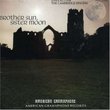

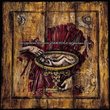


![Across The Universe [Deluxe Edition]](https://nationalbookswap.com/cd//m/51/1251/1241251.jpg)
